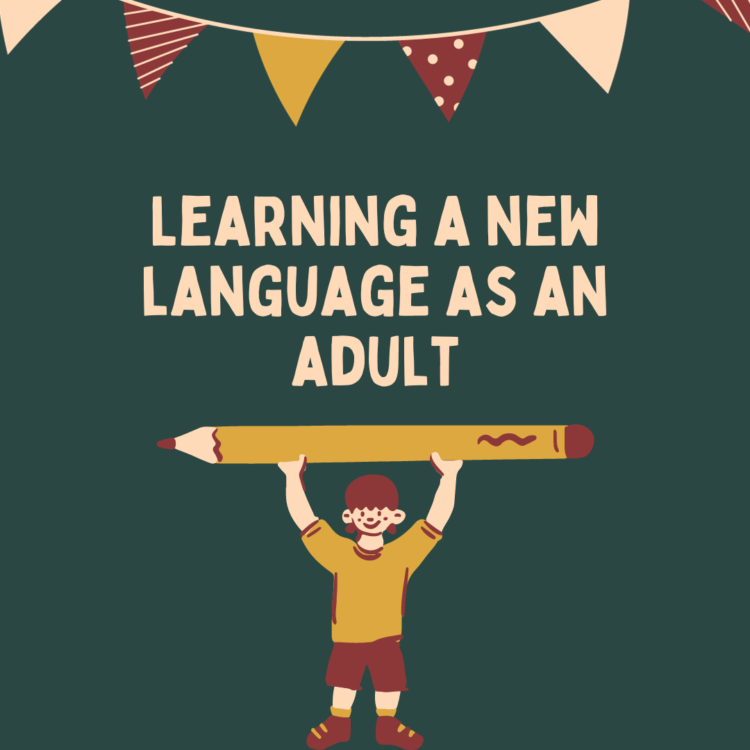The idea that learning a new language is a pursuit reserved for the young has been debunked by countless adults who have successfully mastered foreign tongues. While it’s true that children may have a certain advantage in language acquisition, adults bring their own set of skills and experiences to the table. In this blog, we’ll explore the challenges and rewards of learning a new language as an adult and provide practical tips to make this linguistic journey not only feasible but enriching.
Understanding the Benefits:
Before delving into the how, it’s essential to recognize the numerous benefits of learning a new language as an adult. Beyond the obvious advantages of improved communication while traveling, learning a new language enhances cognitive function, boosts problem-solving skills, and fosters cultural awareness. The process of language acquisition also has positive effects on memory and multitasking abilities.
Setting Realistic Goals:
The key to a successful language-learning journey is setting realistic and achievable goals. Break down the language into manageable components, focusing on specific aspects such as vocabulary, grammar, and conversational skills. Establish short-term and long-term objectives, allowing yourself to celebrate small victories along the way.
Choosing the Right Language:
Selecting the right language to learn is a personal decision. Consider your interests, professional goals, or potential travel destinations. Whether you’re drawn to the romance of French, the precision of German, or the global reach of Mandarin, choosing a language that resonates with you increases motivation and makes the learning process more enjoyable.
Embracing Modern Language Learning Tools:
Unlike the traditional language textbooks of the past, modern technology offers a plethora of interactive and engaging language learning tools. Platforms like Duolingo, Rosetta Stone, and Babbel provide gamified experiences that make learning enjoyable and convenient. Additionally, language exchange apps, such as Tandem and HelloTalk, facilitate communication with native speakers for real-world practice.
Creating a Consistent Routine:
Consistency is key in language learning. Establish a regular routine that includes dedicated time for language practice. Whether it’s 15 minutes every day or a more extended session a few times a week, consistency reinforces learning and helps you progress steadily.
Immersive Experiences and Cultural Engagement:
Immerse yourself in the language and culture you are learning. Watch movies, listen to music, and read books or articles in the target language. Engage with native speakers, join language meetups, or participate in language exchange programs. Immerse yourself as much as possible to enhance your understanding of the language in real-life contexts.
Fearless Communication:
Overcoming the fear of making mistakes is crucial in language learning. Embrace every opportunity to communicate, even if you’re unsure of your proficiency. Native speakers often appreciate the effort, and every conversation, whether fluent or not, contributes to your language development.
Joining Language Classes or Finding a Tutor:
Formal language classes or hiring a tutor can provide structured guidance and personalized feedback. Professional instruction can help correct errors, provide context, and accelerate the learning process. Many language schools offer classes designed specifically for adult learners.
Patience and Perseverance:
Learning a new language as an adult is a journey that requires patience and perseverance. Celebrate progress, no matter how small, and acknowledge that language acquisition is a gradual process. Be kind to yourself, and remember that consistency and dedication are the keys to success.
Conclusion:
Learning a new language as an adult is a challenging yet immensely rewarding endeavor. It’s a journey that opens doors to new cultures, enhances cognitive abilities, and fosters personal growth. By embracing modern tools, setting realistic goals, creating a consistent routine, and immersing yourself in the language and culture, you can embark on a language-learning journey that not only breaks linguistic barriers but also enriches your life in profound ways. Remember, it’s never too late to become a polyglot and explore the world through the lens of a new language.










No Comments
Leave Comment